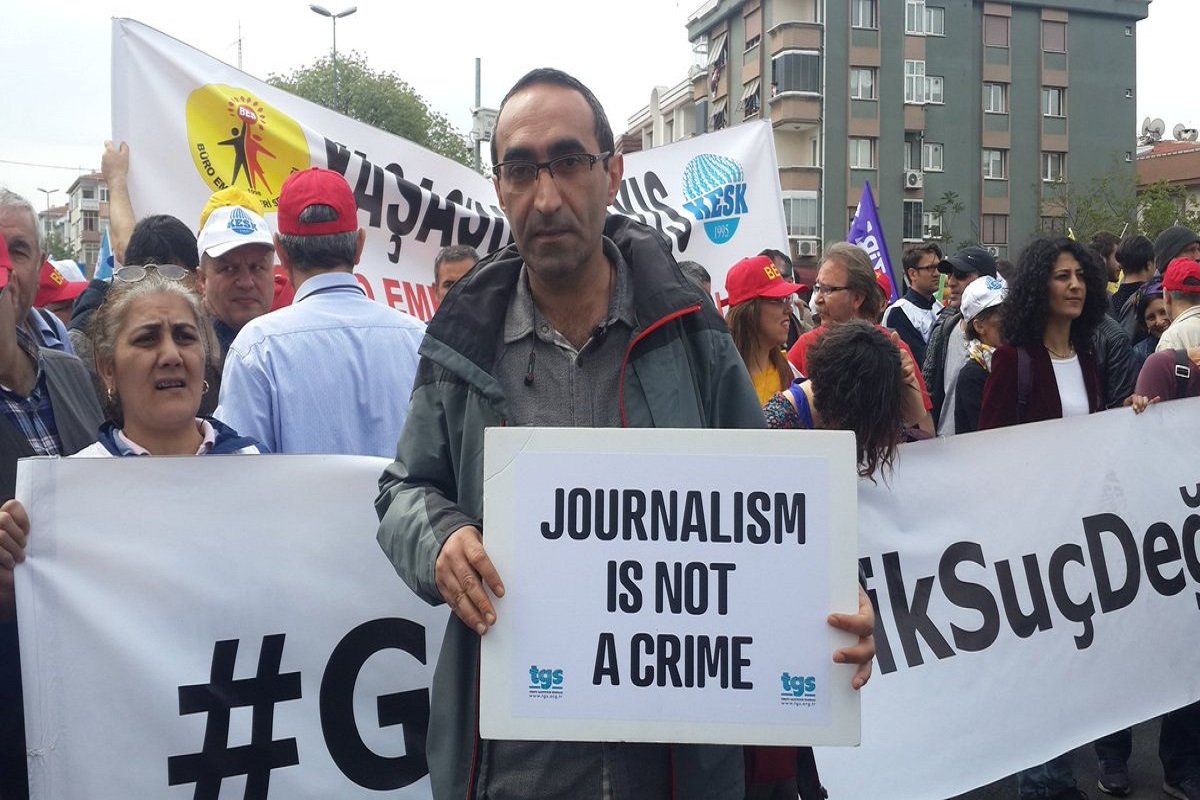Fatih Polat, the editor-in-chief of Turkey’s leftist Evrensel daily, will pay a fine of TL 10,000 (around $1,500) for revealing the identity of a minor in a report published in 2012, the Evrensel daily reported on Thursday.
Polat, who was the daily’s responsible managing editor at the time, faced a lawsuit for revealing the identity of a suspect below the age of 18 in a report published on May 23, 2012. The article concerned the detention of a student in a classroom at a high school in the eastern province of Kars for chanting illegal slogans during a protest.
The 21st article of the Turkish Press Law prohibits revealing the identity of suspects or victims below the age of 18 in publications and stipulates a fine ranging from TL 1,000 to TL 21,000 for contravention of the law.
Polat stood trial at the İstanbul 2nd Penal Court of First Instance, which ruled in May 2013 to impose a TL 10,000 fine but suspended execution of the punishment.
Polat was subsequently given a sentence for another crime related to journalism, so he was retrieved by the İstanbul 2nd Penal Court of First Instance for the first crime.
The court made its final ruling on Thursday and imposed the earlier fine on the Evrensel editor-in-chief. Polat’s lawyer will appeal the court’s decision, the daily said.
Turkey is ranked 157th among 180 countries in the 2018 World Press Freedom Index released by Reporters Without Borders (RSF). If Turkey falls two more places, it will make it to the list of countries on the blacklist, which have the poorest record in press freedom.
Turkey is the biggest jailer of journalists in the world. The most recent figures documented by SCF show that 237 journalists and media workers were in jail as of September 6, 2018, most in pretrial detention. Of those in prison 169 were under arrest pending trial while only 68 journalists have been convicted and are serving their time. Detention warrants are outstanding for 147 journalists who are living in exile or remain at large in Turkey.
Detaining tens of thousands of people over alleged links to the Gülen movement, the government also closed down some 200 media outlets, including Kurdish news agencies and newspapers, after a coup attempt in Turkey on July 15, 2016. (SCF with turkishminute.com)















